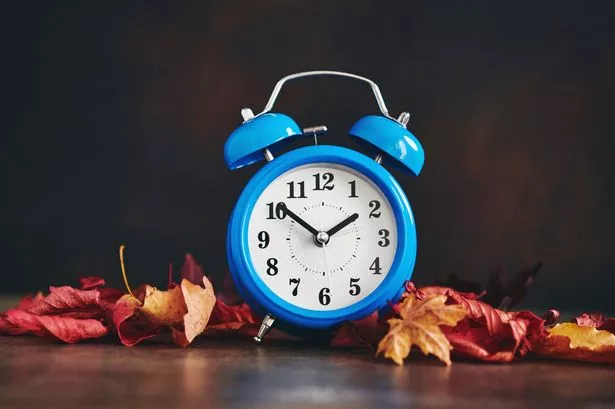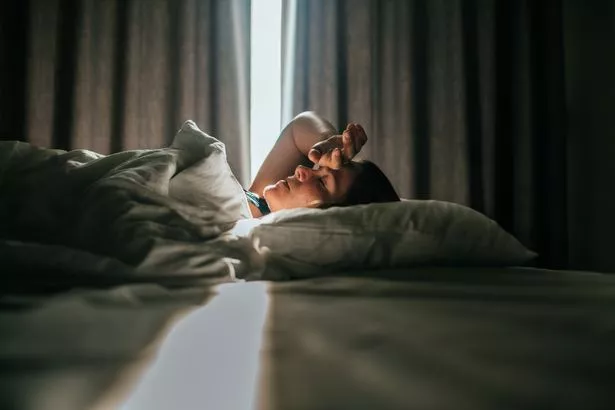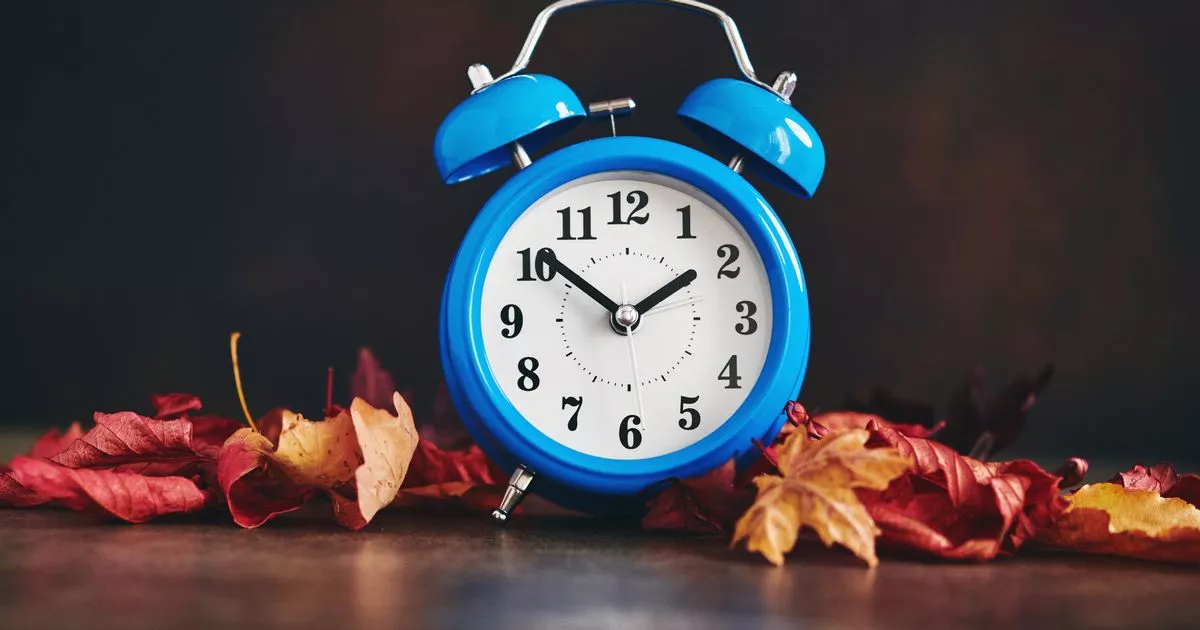Clocks going back an hour is considered the ‘good one’ as you’ll have one hour more in bed but there are downsides There are currently no plans to stop changing the clocks in the UK(Image: Catherine Lane)
There are currently no plans to stop changing the clocks in the UK(Image: Catherine Lane)
As the autumnal weather takes hold and summer memories fade, it’s nearly time for the clocks to go back in Britain. The UK will soon revert back an hour, aligning with Greenwich Mean Time (GMT).
The move signals the official end of British Summer Time (BST), which has gifted us extended daylight during the delightful spring and summer we’ve experienced.
This yearly occurrence is set to happen at 2am on the last Sunday of October, falling on the 26th this year. The shift from BST to GMT brings shorter days and longer, darker nights, but there’s the silver lining of an extra hour’s kip.
The concept of daylight saving time was initially proposed by America’s Founding Father Benjamin Franklin in the 1700s, and later in 1907 by William Willett – who happens to be the great-great-grandfather of Coldplay frontman Chris Martin. However, the practice of adjusting time wasn’t implemented in Britain until the First World War.
Despite the length of time it has been in place, some still can’t quite wrap their head around why exactly the clocks go back and, perhaps more importantly, how it will impact our sleep. After all, we all value a good night’s sleep.
Why do the clocks go back? As the autumn weather settles in, the time is fast approaching for the British clocks to go back once more(Image: david hills)
As the autumn weather settles in, the time is fast approaching for the British clocks to go back once more(Image: david hills)
Do the clocks go back for a scientific reason, possibly to do with the positioning of the sun in summer and winter?
In short, no. The idea first emerged because some people thought that by sleeping through daylight in the summer, the day was being wasted. The idea really took off when William Willet campaigned in Britain to change the clocks.
It’s thought he was annoyed that his golfing would be interrupted by the sun going down, so he wanted to change the law to make sure there would be more light in the evening.
In 1916, the British Parliament passed a law to advance the clocks during summer.
It was decided that this would extend evening daylight and decrease the population’s dependence on coal for energy, which could then be used to manufacture weapons and lay landmines for the war effort.
Nowadays, the rationale is that the time adjustment helps cut down energy consumption, promotes outdoor activities and even reduces road accidents, according to experts.
However, critics warn that gloomier mornings might create safety risks or prove ‘inconvenient’ for particular workers.
Figures from Zurich Insurance reveal that car crashes between 4pm and 7pm surge by 10 to 15 per cent following the autumn clock change when motorists navigate deteriorating visibility.
How will it impact our sleep? Studies suggest that darker evenings can have a negative impact on our mental health (Image: Guido Mieth)
Studies suggest that darker evenings can have a negative impact on our mental health (Image: Guido Mieth)
Many of us welcome an extra hour in bed, however, this slight change in sleep times can leave our circadian rhythm in chaos, leading to groggy mornings, restless nights, and sluggish energy levels that linger well into November.
Research indicates that dimmer evenings can harm our psychological wellbeing and worsen Seasonal Affective Disorder (SAD) symptoms.
Reduced sunlight restricts our opportunities for post-work or after-school outdoor pursuits, potentially triggering loneliness and exhaustion, with Danish research showing an 11 per cent rise in clinical depression following the autumn time shift.
According to Dr Babak Ashrafi at Superdrug Online Doctor, this is the perfect time to focus on achieving restful and restorative sleep as, as the days get shorter, structure and self-care around bedtime can make all the difference.
“The most important step is sticking to a bedtime routine that winds you down, such as reading, light stretching, or a warm bath,” Dr Ashrafi said.
“Keep your bedroom cool, dark, and quiet, and give screens a break before bed. A calm mind is a sleepy mind, so avoid anything stressful in the lead-up to lights out.”
 Join the Daily Record WhatsApp community!
Join the Daily Record WhatsApp community!
Get the latest news sent straight to your messages by joining our WhatsApp community today.
You’ll receive daily updates on breaking news as well as the top headlines across Scotland.
No one will be able to see who is signed up and no one can send messages except the Daily Record team.
All you have to do is click here if you’re on mobile, select ‘Join Community’ and you’re in!
If you’re on a desktop, simply scan the QR code above with your phone and click ‘Join Community’.
We also treat our community members to special offers, promotions, and adverts from us and our partners. If you don’t like our community, you can check out any time you like.
To leave our community click on the name at the top of your screen and choose ‘exit group’.
If you’re curious, you can read our Privacy Notice.
Creating the right bedroom environment is crucial for a good night’s sleep. Strive for a cool temperature between 15-19C and keep a dark room as it signals your brain to produce melatonin, helping you stay asleep longer.
The expert added: “As we move into darker evenings, the temptation to spend more time scrolling or streaming can throw off your internal clock even further. Experts suggest limiting screen exposure and instead embracing calming pre-bedtime rituals like reading or meditation to help your body wind down naturally.”

